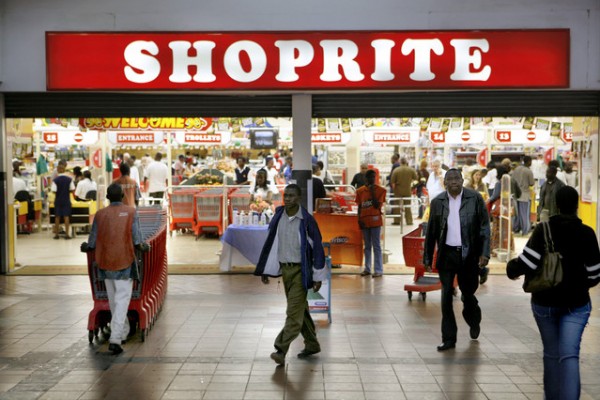South African President, Cyril Ramaphosa, has reached out to President Muhammadu Buhari regarding the rising tension between the two countries days after the National Association of Nigerian Students (NANS) threatened to shut down MultiChoice, Shoprite, MTN businesses and replicate xenophobic attack on South African citizens in Nigeria.
The Presidency revealed that President Buhari has been invited to South Africa by Ramaphosa to discuss the living condition of Nigerians based in the country. According to the statement released on its Twitter handle – @NGRPresident, the meeting slated for October would also include trade issues.
[READ ALSO: Nigeria’s decision to sign the AfCFTA might be a grievous mistake after all]
The relationship between Nigeria and South Africa experienced a nosedive recently with a 7-day ultimatum issued to South African businesses to stop operation in Nigeria, following attacks on Nigerians and their businesses in South Africa.
The two countries, which have the largest economies in Africa, are both expected to play a vital role in the recently signed free trade agreement between more than 50 countries. Also, while Nigeria is dependent on importation, South Africa is Nigeria’s preferred option for the importation of goods, with the country accounting for 34.7% of Nigeria’s import from African countries in 2017.

This makes the relationship between Nigeria and South Africa crucial to both African leaders. And in order to strengthen their weakening relationship, President Buhari and President Ramaphosa will focus on fostering “strategic partnership and cooperation on matters of peace, security & socio-economic development in our continent,” the statement disclosed.
STATE HOUSE PRESS RELEASE
PRESIDENT BUHARI, SOUTH AFRICAN PRESIDENT RAMAPHOSA AGREE TO MEET ON CONSULAR, TRADE ISSUES #Thread
— Presidency Nigeria (@NGRPresident) August 10, 2019
Other talking points of the telephone conversation between the two presidents include:
- discussions on issues relating to the well-being of citizens and ways to further strengthen trade relations between the two largest African economies;
- the need to promote trade and investment;
- opportunity to inaugurate a Bi-national commission for both countries to effect the strategic decisions taken in 2016 to elevate it to the level of Heads of State; and
- mutual interest and concern in global governance.

Is the meeting too late? While the meeting is slated for October, NANS is already taking action. The students’ body gave an ultimatum of seven days for the multinational businesses owned by South Africans to close business. The group carried out a part of their threat by shutting down Shoprite’s store in Ogun State four days after and has promised to carry on with the action in other areas.
[READ ALSO: Superstores in Nigeria: Can SPAR and Shoprite’s business models keep them afloat?]
Why the two governments scheduled the meeting two months from now remains unknown despite NANS already threatening to picket and shut down South African businesses.
NANS wants an urgent solution but President Buhari and President Ramaphosa prefer October. With the closure of Shoprite’s outlets in some Nigerian cities, there’s a possibility both African leaders will reconsider the timeframe of their meeting.

Consequences of NANS’ action: If the South African companies decide to exit Nigeria, Nigerians will be affected negatively. In a period when unemployment is on the rise, companies are to be encouraged to remain operational. Thousands of jobs will be lost, some of the sectors of the economy will be affected because Nigeria is not prepared for such an outcome.
Impact on SA businesses: While the closure of South African businesses in Nigeria will affect their revenue as expected, it will also take a large chunk of their returns as Nigeria is their major market, especially for companies like Pioneer Foods Group, Shoprite, Stanbic IBTC and MultiChoice, a Nairametrics research showed. Nevertheless, the exit will leave a lasting effect on both Nigerian and South African businesses.
















